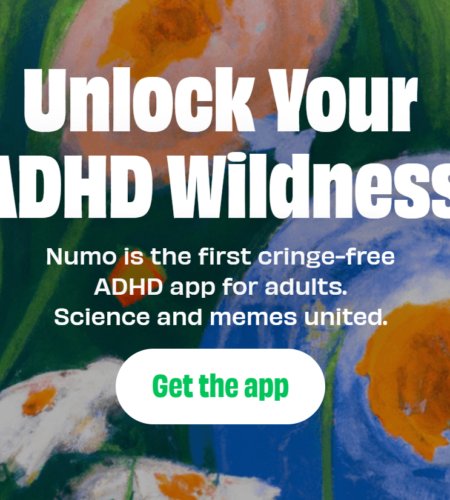(image credit: Numo.so Website)
Living with Attention Deficit Hyperactivity Disorder (ADHD) presents a unique set of challenges, often impacting one’s ability to focus, stay organized, and manage daily tasks. For many, these difficulties extend into both professional and personal spheres, creating a sense of overwhelm and frustration. Enter artificial intelligence (AI), which is increasingly being seen as a potential lifeline for those struggling with ADHD. While AI apps like Goblin.tools and ChatGPT are making waves by helping users with everything from business planning to grocery shopping, experts urge a balanced approach, highlighting both the promise and pitfalls of this technology.
The Promise of AI in Managing ADHD
AI has proven to be a game-changer for many individuals with ADHD, offering transformative support in managing their daily lives. Various AI tools have been developed to address the unique challenges faced by those with ADHD, providing tailored assistance for tasks and daily activities.
Numo ADHD stands out for its ability to prioritize tasks based on urgency and importance. This app uses AI to create a prioritized list, helping users focus on high-priority tasks. In addition to task prioritization, Numo ADHD offers a supportive neurodiverse community and bite-sized stories with practical coping skills.
Kawaii Tasks provides a more streamlined approach to task management. This simple AI app allows users to break down tasks into subtasks and track completion. It’s a lightweight tool that helps users manage their to-do lists effectively, making it easier to stay organized and complete tasks.
Goblin.tools offers versatile features, including the “Magic ToDo” for breaking down and estimating tasks and the “Formalizer” for turning unstructured text into organized writing. The “Judge” tool assesses the tone of written messages, catering to various needs and challenges faced by individuals with ADHD.
ChatGPT from OpenAI serves as a flexible, multi-purpose tool. Its dynamic interface allows users to ask a wide range of questions and receive tailored responses. With a variety of prompts available for ADHD support and a powerful technological engine, ChatGPT is a valuable resource for managing tasks and seeking guidance.
These AI tools collectively represent significant advancements in ADHD management. By offering support in organizing tasks, prioritizing responsibilities, and providing practical assistance, they can help users navigate the complexities of daily life more effectively.
Aiding Daily Life Beyond the Office
AI’s utility extends beyond professional settings, significantly impacting everyday activities. For those with ADHD, tasks like grocery shopping can become less daunting with AI assistance. Features such as shopping list generation, reminder setting, and organizational support help reduce the cognitive load associated with routine tasks, making them more manageable and less stressful.
This kind of assistance highlights AI’s broader potential in daily life for individuals with ADHD. From managing schedules and organizing tasks to setting reminders and aiding in educational pursuits, AI can act as a personal assistant, enhancing the overall quality of life and helping to mitigate the effects of ADHD.
Expert Cautions: Balancing AI with Traditional Treatment
Despite the promising benefits, experts urge caution when integrating AI into ADHD management. AI tools, while helpful, should not replace traditional ADHD treatments. They are most effective when used as part of a comprehensive approach that includes therapy, medication, and skill-building exercises.
Experts emphasize that while AI can be a powerful aid, it should be considered one tool among many. Traditional methods remain crucial for addressing ADHD’s core challenges. AI can offer valuable support, but users must ensure that it complements rather than replaces established treatment strategies.
In conclusion, as AI technology continues to advance, it holds significant promise for supporting individuals with ADHD. By integrating these tools thoughtfully and maintaining a balanced approach, users can leverage AI to enhance their daily lives while still benefiting from traditional ADHD management methods.


